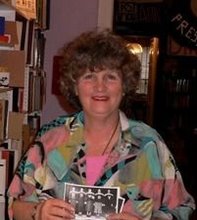

The news from Haiti pours out upon the world; it took so long and so much death for this country, so marked by colonial history and resistance to its grip, to be seen again. Pushed to the edges of world concern, of American concern, by matters of race and class, by its lack of wanted resources--even its people mostly have a hard time gaining refuge in the countries that have caused so many of its losses--Haiti, as close to America as Cuba, the dismissed country, the invisible people, to those in power. Haiti, who sang of a people's collective urge for freedom, while Napoleon still rode on the back of his armies, Haiti whose writers dreamed of unending collectives, workers united to turn drudgery into national wealth, Haiti where painters and poets found languages of color and shape to bring to the world their unique vision of Africa in the Caribbean, Haiti whose people make an art form of inventing living languages and religions that wear the vestments of the past but invoke new songs of the magic of the spirit. In patois and in French, using all they have to create, always create. I am thinking of my Haitian students, of Firenz, of Yvonn, of Isabella, of Darby Bruno with whom I read Jaques Roumain's "Masters of the Dew," over 30 years ago, of the great contemporary Haitian writer, Edwidge Danticat, who in the 1990s came and spent a day reading her texts with our students, how they poured over her words, and held them up for her to see in their word-worn hands. Of Darby, stocky and tough, taking the small role of the prison van driver when we were performing Bessie Head's "Collector of Lost Treasures." How he created a whole life lived transporting the hopeless to their final home in his portrayal, Darby who struggled every day to make it to the unwelcoming Queens College campus. Of sitting across from a two of my Haitian women students on the Flushing line subway and how they covered their mouths with their hands when they turned to speak to each other--we are sometimes ashamed of speaking Creole, here at the College, they had told me. Patois under the stern gaze of French, still finding hidden places to keep a people alive. And the last day of classes one term now lost in all the years, when a group of my students presented me with two Haitian wooden mortar and pestles, the fine grinding tools of bush survival, of savory creation. When I had to chose among my possessions for the final move of my life, for my own dispersal, I carefully wrapped them so they would arrived unharmed from their 23,000 mile flight across the Pacific seas.
It is you I think of now, my Haitian students, with all your cultural riches, with all the strengths of your spirit and intelligences, with all your determination, with your knowledge of political struggles and the cost of national courage in the face of the killing thuggery of Poppa Doc and his American supporters. Know that you have never left me, that the time I spent learning from you, embodied all the wonders of my life as a teacher. As I write these words, I see the face of the old man, who still remembers Africa, in the film of "Black Shack Alley," set in the sugar cane fields of Martinique, I see the face of the pipe- smoking grandmother who did all she could to keep Joseph out of the killing fields; you sat and watched that film with me, in a dark room on a cold winter morning far out in Flushing, Queens, in a temporary Quonset hut that was our SEEK classroom, and told me, life was hard but a people's desire to live and create, to refuse divisions of class and race, was greater still. Breath, eyes, memory now more then ever, dear Haiti.

No comments:
Post a Comment